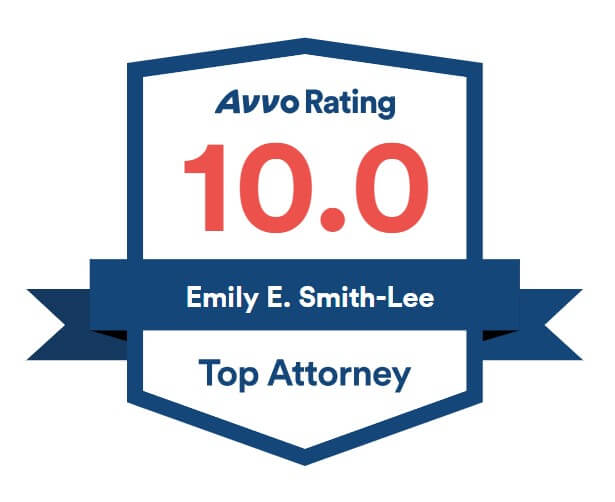Massachusetts Employment Law: Overview
|
For a business owner, employees are likely the single largest financial investment of the company. They are also what you rely on the most heavily for your business to succeed.
For employees the relationship is equally, if not more, important. You rely on your salary or wages to support your family. You also likely rely on the experience to build your career. In short, you need each other, and in many cases the relationship is positive and beneficial to both parties. But things sometimes do go wrong. When they do it is important to understand your rights under Massachusetts employment law. Here are some of the most important rules. Payment of Wages and SalaryFederal and state laws have many rules about how employees are paid. Both require overtime pay for time worked over 40 hours in any single work week.
Both require payment of minimum wage for all hours worked. If you work in Massachusetts, you are entitled to earn the higher state minimum wage. Massachusetts wage and hour laws require payment of wages within six days of the end of each pay period. Your employer is also required to pay you any earned wages, overtime and commissions at the time of termination if you are fired or laid off. |
Need Help With an Employment Law Problem?OR
|
Looking for Answers Now?
Our Solutions Roadmap is a quick and easy way to share the details of what you are facing and receive preliminary feedback from a member of our team. It is 100% confidential and 100% free.
Employment Discrimination Under Massachusetts Law
Both Massachusetts and federal law protect employees in certain protected classes from employment discrimination. These rules are enforced by the federal Equal Employment Opportunity Commission ("EEOC") and the Massachusetts Commission Against Discrimination.
Employment action based on race, gender, religion, disability, or any other protected class is unlawful. This includes termination, certain kinds of discipline, and refusal to hire. If you report discrimination or harassment, your employer is also not allowed to take action against you for making that report.
Employment action based on race, gender, religion, disability, or any other protected class is unlawful. This includes termination, certain kinds of discipline, and refusal to hire. If you report discrimination or harassment, your employer is also not allowed to take action against you for making that report.
Disability in the Workplace
Employers are not allowed to discriminate based on disability or perceived disability. If an employee has a disability but can perform the essential functions of the job with a reasonable accommodation, the employer is required to take those steps to accommodate.
Employees also have certain rights under federal and state law if they have an illness requiring a leave from work. If your employer has 50 or more employees, you may be entitled to leave under the Family Medical Leave Act ("FMLA"). The FMLA provides up to 12 weeks of job protected leave. This leave is available if you have a serious medical condition or for the birth or adoption of a child. The leave is also available to care for an immediate family member with a serious medical condition.
A state version of family medical leave will be available to most employees in Massachusetts in 2021. Unlike the federal FMLA, there will be funds available to provide partial pay during a Massachusetts family leave.
Massachusetts employees are also entitled to accrue up to five days of sick time under the Massachusetts Earned Sick Time Law.
If you take leave under any of these laws, you are engaging in protected activity. This means your employer is not allowed to take action against you for using the leave. The same is true if you take time off under the workers compensation laws if you are injured at work.
Employees also have certain rights under federal and state law if they have an illness requiring a leave from work. If your employer has 50 or more employees, you may be entitled to leave under the Family Medical Leave Act ("FMLA"). The FMLA provides up to 12 weeks of job protected leave. This leave is available if you have a serious medical condition or for the birth or adoption of a child. The leave is also available to care for an immediate family member with a serious medical condition.
A state version of family medical leave will be available to most employees in Massachusetts in 2021. Unlike the federal FMLA, there will be funds available to provide partial pay during a Massachusetts family leave.
Massachusetts employees are also entitled to accrue up to five days of sick time under the Massachusetts Earned Sick Time Law.
If you take leave under any of these laws, you are engaging in protected activity. This means your employer is not allowed to take action against you for using the leave. The same is true if you take time off under the workers compensation laws if you are injured at work.
Employment Termination Under Massachusetts Law
Massachusetts is an at-will employment state. This means that in general an employee can be fired for a good reason, a bad reason or no reason at all. It is only a wrongful termination if it violates some other law, like the discrimination laws. In certain circumstances, if the employee is also a shareholder in a closely held corporation, termination may be a breach of fiduciary duty.
If you have questions about your termination, an employment lawyer can help you determine if you have a claim. In most circumstances, you should still be entitled to collect unemployment benefits while looking for a new job.
Sometimes there are situations where unlawful conduct in the workplace makes it impossible for the employee to continue working. Learn more about claiming constructive discharge under Massachusetts law.
If you receive a performance improvement plan that you think is unfair or unwarranted, this could be an early opportunity to have a lawyer assess your situation and potential legal claims.
If you have questions about your termination, an employment lawyer can help you determine if you have a claim. In most circumstances, you should still be entitled to collect unemployment benefits while looking for a new job.
Sometimes there are situations where unlawful conduct in the workplace makes it impossible for the employee to continue working. Learn more about claiming constructive discharge under Massachusetts law.
If you receive a performance improvement plan that you think is unfair or unwarranted, this could be an early opportunity to have a lawyer assess your situation and potential legal claims.
Sexual Harassment in the Workplace
Sexual harassment in the workplace has been an issue since long before the #metoo movement. Both federal and state employment laws protect you from sexual harassment. They also protect your from retaliation for a good faith complaint about harassment.
Employment Contracts Under Massachusetts Law
If you have a written employment contract, you may have additional rights under that agreement. Courts will enforce the terms of an employment contract if they reflect the intent of the parties.
There are two main exceptions to this rule. First, if a contract is against public policy a court may not enforce it.
Second, non compete agreements are subject to special scrutiny. Under the new Massachusetts Non Compete law, these agreements will not be enforced unless they meet the specific requirements of the law.
Under some circumstances, courts will also enforce clear promises made to the employee even if there is no written contract.
Other restrictive covenants, like non disclosure agreements, non solicitation agreements, and work for hire provisions are also common in employment contracts. It is important to consider these agreements before signing and when transitioning to a new job.
There are two main exceptions to this rule. First, if a contract is against public policy a court may not enforce it.
Second, non compete agreements are subject to special scrutiny. Under the new Massachusetts Non Compete law, these agreements will not be enforced unless they meet the specific requirements of the law.
Under some circumstances, courts will also enforce clear promises made to the employee even if there is no written contract.
Other restrictive covenants, like non disclosure agreements, non solicitation agreements, and work for hire provisions are also common in employment contracts. It is important to consider these agreements before signing and when transitioning to a new job.
Independent Contractors Under Massachusetts Employment Law
Often people will be hired not as employees but as independent contractors. A true independent contractor does not enjoy the same labor law protections as an employee. However, under Massachusetts law many people paid as independent contractors really should be considered employees.
Massachusetts Employment Law Terms
Wage and hour laws. These are the federal and state laws that govern timely payment of wages, overtime pay, and minimum wage.
FMLA. The federal family and medical leave act.
EEOC. The federal Equal Employment Opportunity Commission. The EEOC is charged with enforcing federal discrimination laws, but can hear state claims as well.
MCAD. The Massachusetts Commission Against Discrimination. The MCAD is charged with enforcing state discrimination laws,, but can hear federal claims as well.
DUA. The Massachusetts Department of Unemployment Assistance. The DUA is the agency that processes unemployment claims.
FMLA. The federal family and medical leave act.
EEOC. The federal Equal Employment Opportunity Commission. The EEOC is charged with enforcing federal discrimination laws, but can hear state claims as well.
MCAD. The Massachusetts Commission Against Discrimination. The MCAD is charged with enforcing state discrimination laws,, but can hear federal claims as well.
DUA. The Massachusetts Department of Unemployment Assistance. The DUA is the agency that processes unemployment claims.
How Our Employment Lawyers Can Help
We can help you assess your employment situation and get clarity on your rights and obligations in the face of an actual or anticipated job termination, a question or complaint about sexual harassment in the workplace, issues regarding a non compete agreement, wage and hour questions, or any other difficult employment situation you are facing. You can use the button below to schedule a call back from a member of our team, or give us a call at 781-784-2322.



